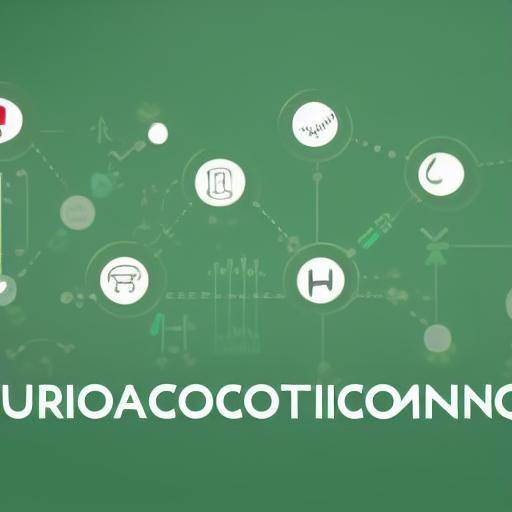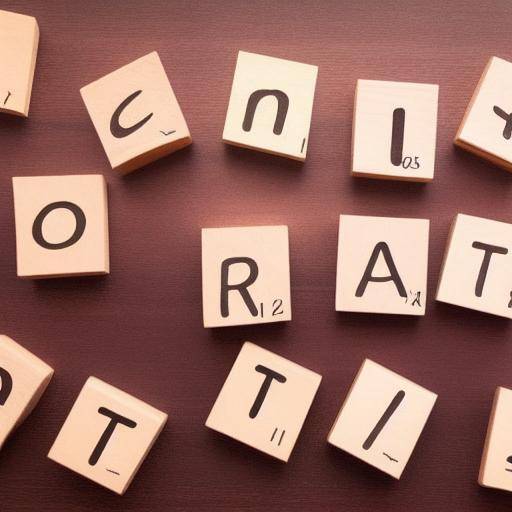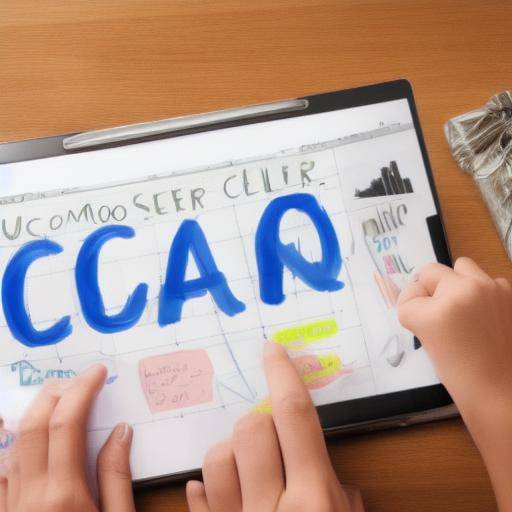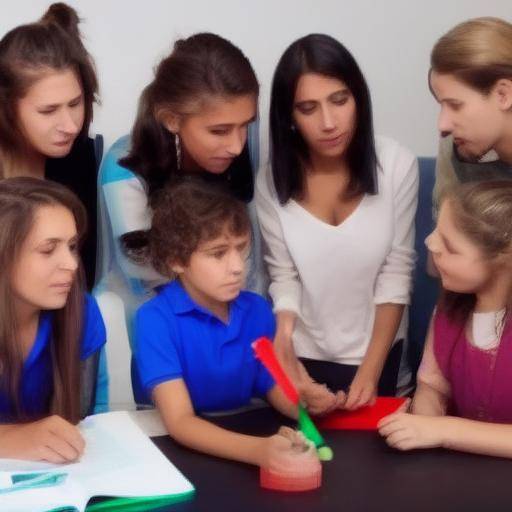
Self-consciousness is a fundamental aspect of personal development that carries a profound understanding of our emotions, thoughts and behaviors. By cultivating self-consciousness, we can acquire a greater understanding of ourselves, which in turn allows us to maintain a stronger emotional balance. In this article, we will explore in detail how the development of self-consciousness can positively impact our emotional balance, as well as offer practical advice and expert perspectives on this topic as relevant in the field of emotional well-being and psychology.
Introduction
The journey to personal development and emotional balance begins with self-consciousness. Understanding who we are, our strengths and weaknesses, as well as our emotional reactions and behavior patterns, is essential to cultivate lasting emotional well-being. In this article, we will explore the power of self-consciousness as a tool to achieve a healthy emotional balance, addressing its importance, its relationship with personal development, its benefits and challenges, as well as practical advice for its continuous development.
History and Background
The notion of self-consciousness has a rich history that goes back to the ancient Eastern and Western philosophies, where introspection and self-knowledge were valued as pillars of spiritual and emotional development. Since then, several philosophical, psychological and spiritual currents have addressed self-consciousness, giving it a significant relevance in human well-being.
Self-consciousness took a relevant role in modern psychology from the work of prominent figures such as Carl Rogers and Abraham Maslow, who considered it essential for self-knowledge and personal growth. Also, more recent currents such as cognitive neuroscience have demonstrated the positive impact of self-consciousness on emotional regulation and decision-making.
Deep analysis
The development of self-consciousness entails numerous benefits, including greater ability to regulate our emotions, better understand our interpersonal relationships and develop greater authenticity in our interactions with the world around us. It also promotes self-acceptance and emotional resilience, which can result in better stress management and greater emotional stability.
However, the path to self-consciousness is not without challenges. In many cases, facing our emotions and behavior patterns can be uncomfortable and challenging, which requires a considerable dose of courage and determination. In addition, self-consciousness involves a continuous process of self-reflection and self-evaluation, which demands sustained time and effort.
Comprehensive review
Self-consciousness manifests in various forms, including emotional consciousness, body consciousness, self-consciousness and social consciousness. Each of these dimensions plays a crucial role in the development of self-consciousness and its impact on our emotional balance. In addition, different approaches and practices, such as meditation, psychotherapy, mindfulness and personal coaching, can be effective tools to cultivate self-consciousness.
In the area of personal development, self-consciousness has become a central pillar, since it is considered the starting point for any significant change or growth. Recognizing our automatic thoughts, limiting beliefs and behavioral patterns gives us the opportunity to constructively transform them, which has a positive impact on our emotional well-being and our quality of life in general.
Comparative analysis
Self-consciousness, emotional balance and personal development are intrinsically interconnected. Self-consciousness is the catalyst that drives personal development, while emotional balance is the result of continuous work in self-consciousness and self-discovery. Understanding oneself at a deep level is a fundamental step in the way to personal realization and emotional harmony. Through self-consciousness, we can identify harmful thinking patterns, effectively manage stress and emotional difficulties, and build a solid foundation for sustainable personal development.
Practical Tips and Accessible Tips
The development of self-consciousness is not an instant process, but rather a continuous journey of self-exploitation and personal growth. Here are some practical tips to promote self-consciousness and maintain emotional balance:
- Practice Full Care: Meditation and full attention are powerful tools to cultivate self-consciousness. Dedicate time every day for meditation and conscious observation of your thoughts and emotions.
- Take a Journal of Self-Awareness: Keeping a personal journal can be an effective way to record your thoughts, emotions and behavior patterns, which allows you to identify areas of personal growth and development.
- Find Constructive Feedback: Requesting honest feedback from trusted people can offer you an external vision of your strengths and areas of improvement, thus feeding your self-consciousness.
- Practice Self-questioning: Plant reflective questions about your motivations, thoughts and behaviors. This will help you unravel your psychological patterns and challenge limiting beliefs.
Perceptions of Industry and Expert Reviews
Psychology and emotional well-being professionals recognize the fundamental role of self-consciousness in maintaining emotional balance. According to clinical psychologist Dra. Elena Ramos, "Self-consciousness is the basis on which we build our emotional health. It allows us to recognize and manage our emotions, which in turn gives us greater emotional stability and well-being in general."
Likewise, experts in personal development such as the coach Sergio Martínez emphasize the importance of self-consciousness in personal growth: "Self-consciousness gives us clarity about who we are, what we want and how we can achieve our goals. It is the first vital step for any meaningful change in our lives."
Case Studies and Real Life Applications
To illustrate the importance of self-consciousness in emotional balance, let us consider Laura, a busy executive who experienced high levels of stress and anxiety at work. Through the development of self-consciousness, Laura managed to identify the triggers of her stress and adopted effective strategies of emotional regulation, resulting in a remarkable improvement in her emotional well-being and her work performance.
In addition, in an educational environment, self-consciousness has proven crucial to the socio-emotional development of students. By fostering self-consciousness through reflection and open dialogue, educators have observed a reduction in interpersonal conflict and an increase in empathy and self-management among students.
Future Trends and Predictions
As emotional awareness and psychological well-being continue to gain greater relevance in modern society, self-consciousness is expected to be a central focus on promoting emotional balance and personal development. The integration of self-consciousness into educational environments, working environments and community welfare programs will tend to expand, offering more people the tools necessary to understand themselves and effectively manage their emotions.
Conclusion
The process of personal development and the maintenance of emotional balance are intrinsically linked to self-consciousness. By understanding who we are, how we think and feel, and why we act in certain ways, we can develop greater compassion for ourselves and others, as well as maintain a solid emotional balance in our lives. Ultimately, self-consciousness provides us with the tools to lead a more conscious, authentic and meaningful life.
Frequently asked questions
What exactly is self-consciousness?
Self-consciousness is the ability to recognize and understand one's own thoughts, emotions, behaviors, strengths and weaknesses, which entails a deep understanding of oneself.
How does self-consciousness affect emotional balance?
Self-consciousness provides people with the ability to regulate their emotions, better understand their reactions and behavior patterns, and develop greater authenticity in their interactions, which is crucial to maintaining a healthy emotional balance.
What are some effective strategies to develop self-consciousness?
Practicing meditation, carrying a personal journal, seeking out feedback and actively questioning one's own thoughts and behaviors are effective strategies to foster self-consciousness.
Why is self-consciousness important in the field of personal development?
Self-consciousness is fundamental in personal development, as it provides the basis for identifying areas of strength and growth, challenging limiting beliefs and fostering greater understanding of oneself.
What is the role of self-consciousness in decision-making?
Self-consciousness influences decision-making by allowing people to weigh their values, goals and emotions, which can result in more aligned decisions with who they are and what they want.
How can self-consciousness impact interpersonal relationships?
Self-consciousness promotes a deeper understanding of oneself, which in turn facilitates empathy, effective communication and conflict resolution in interpersonal relationships.
In short, self-consciousness is a fundamental component of emotional balance and personal development. By understanding our own complexities and internal challenges, we can cultivate greater emotional stability and overall well-being in our lives.
With this comprehensive vision of self-consciousness, emotional balance and personal development, we hope to have provided an enriching and practical understanding to foster personal and emotional growth.






















































